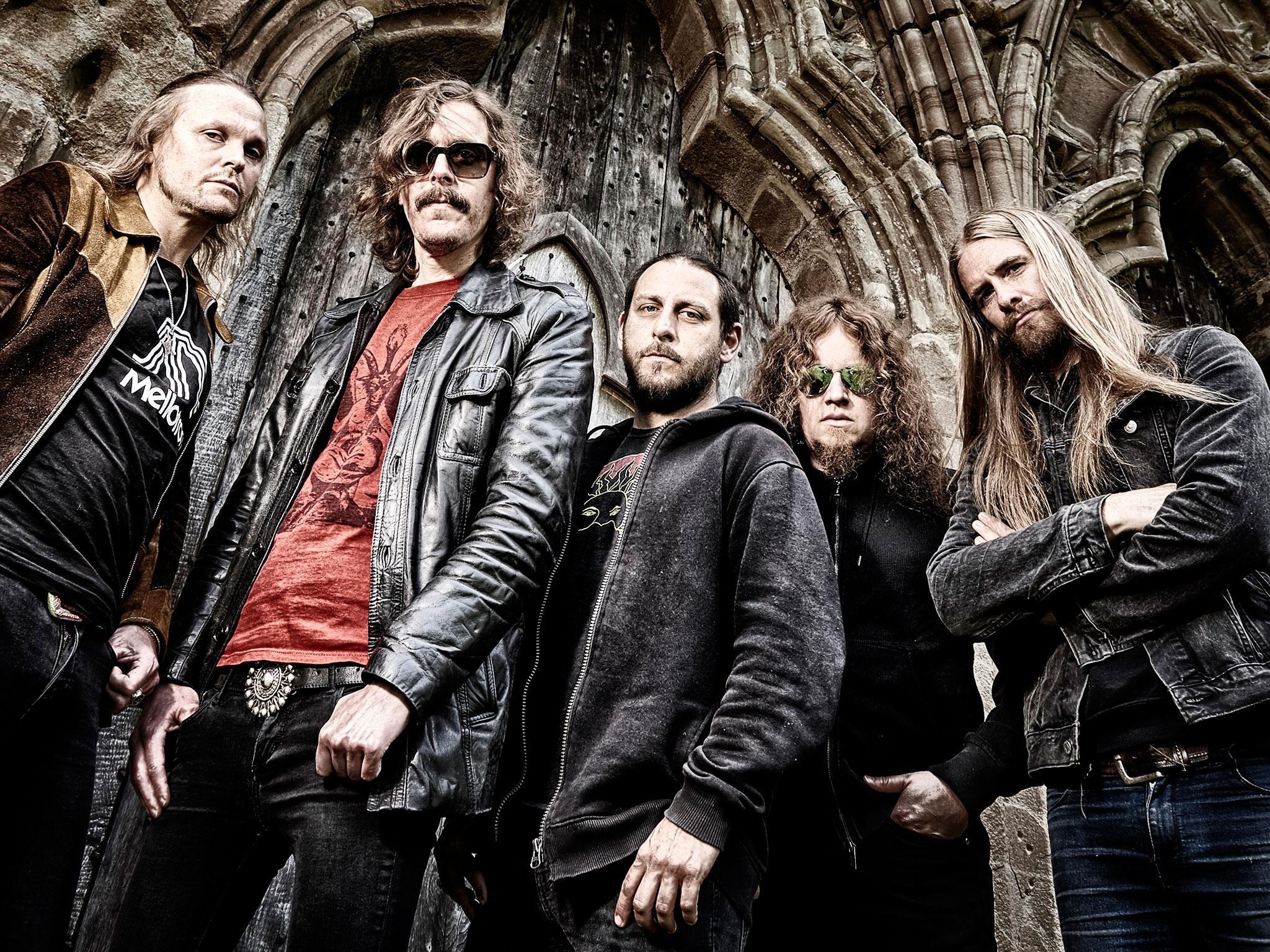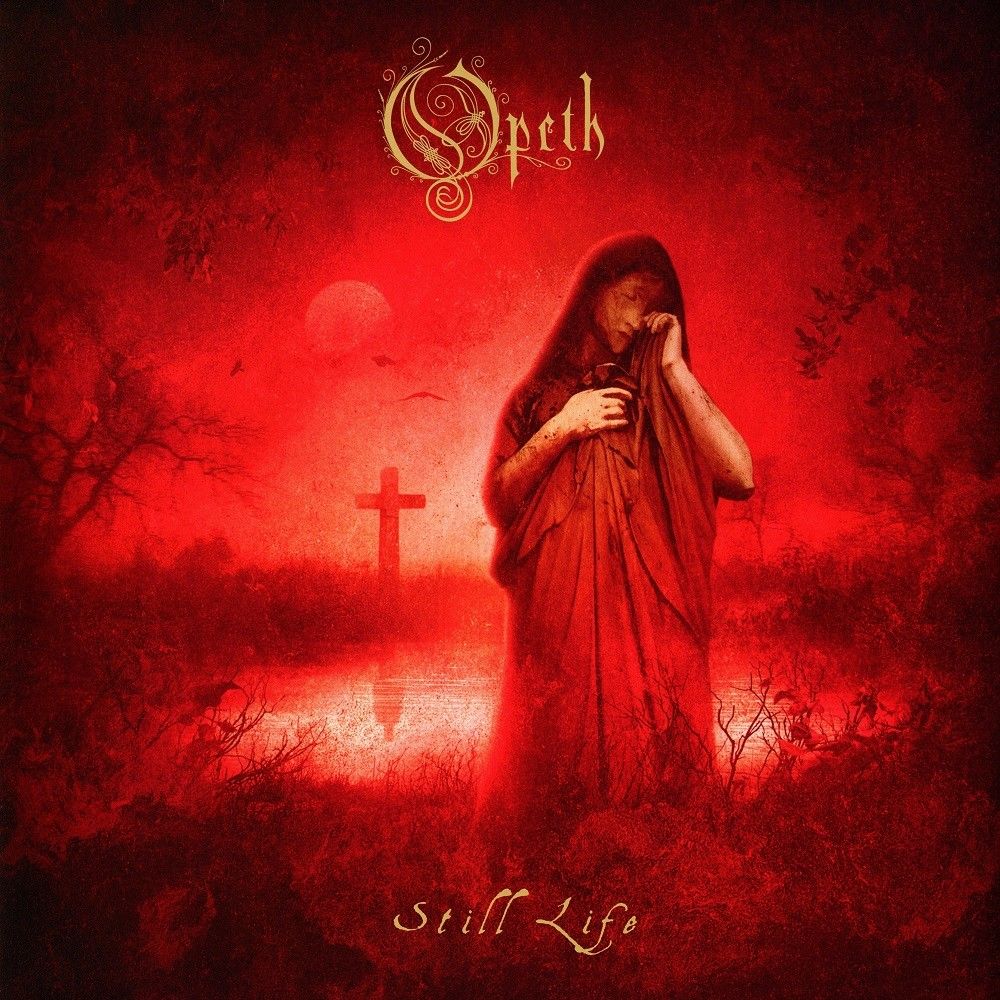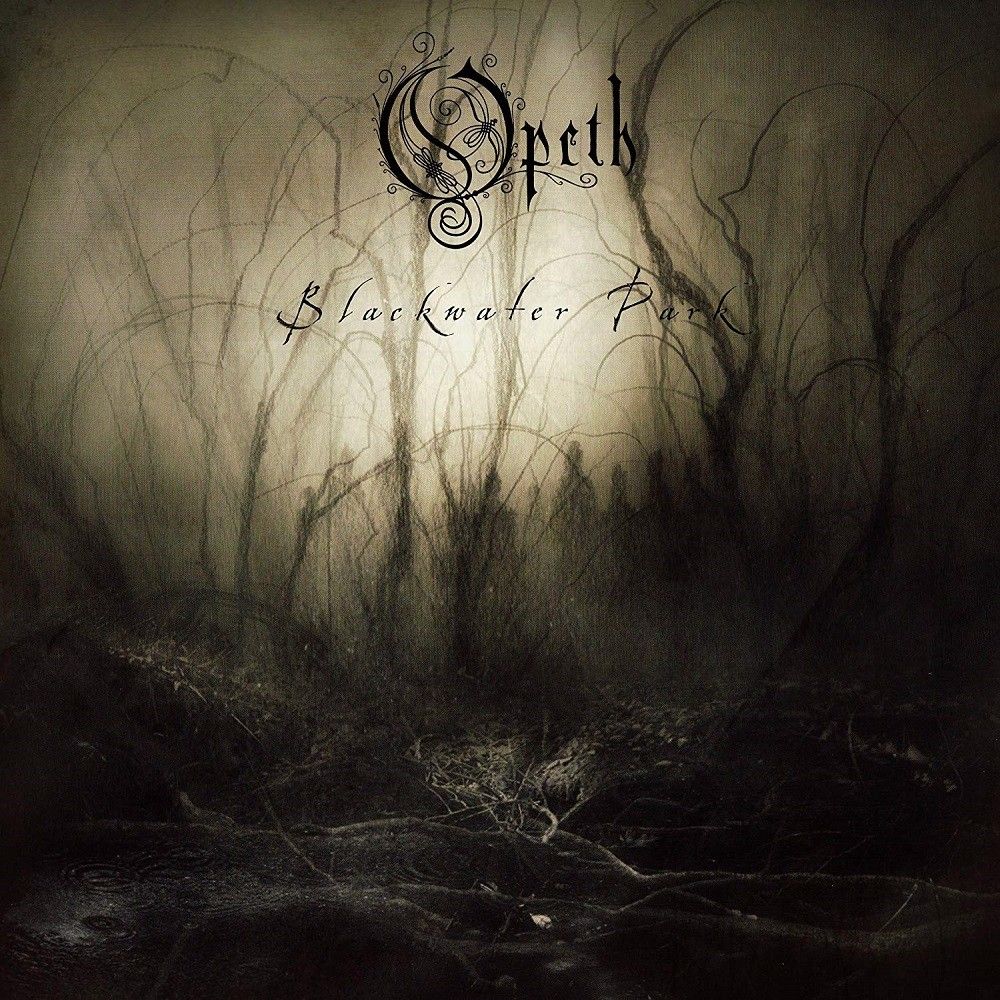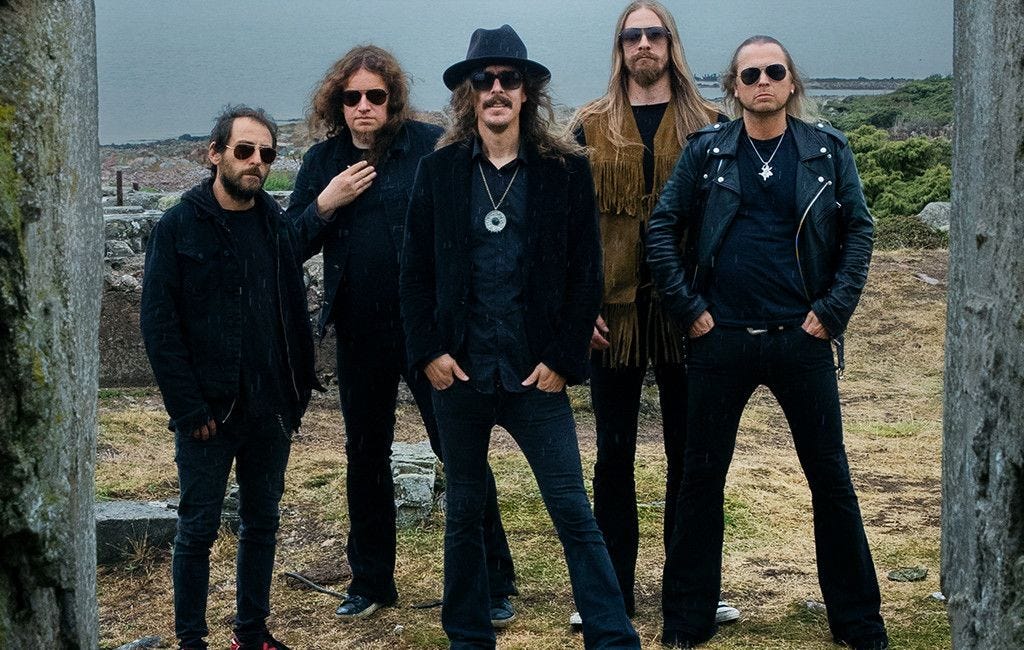Listen To KEVIN DUBROW Singing SCORPIONS “Big City Nights”; One Of His Last Ever Recordings
Kevin DuBrow passed away in 2007 at the age of 52. Kevin was best known as the lead vocalist of

Welcome to another edition of Versus. The series where we look at two albums in metal history, compare them, to see which one was the better record. In this special edition, we will pick two releases from one band.

This version of inward fighting involves Sweden's prog death metal titans Opeth. A band that has been on the forefront of fusing progressive music's instrumentation, clean vocals, and musical time signatures and key changes. Combined with the classic elements of Swedish death metal. Today, we will tackle two of the band's well respected releases. Highly adored by fans & critics in this matchup I'm calling "The Progression into Progressive."

First up is the band's fourth album, 1999's Still Life. A concept album dealing with anti-Christian themes, isolation and lost love. Cited as a beautiful marriage of beauty and brutality, the album helped the band's popularity grow and introduce a lot of people to Opeth. Let's take a look at this record and see what made this a highlight in the band's discography.
Opening the album is "The Moor", the longest song on the album at over eleven minutes. A complex track with a beautiful almost three and half minutes of pure instrumental passages. With an opening of sorrowful guitars in the background, almost mimicking a violin, to beautiful sweeping acoustic guitar passages that sounds like something off their later record "Damnation", before vocalist Mikael Åkerfeldt's legendary growls start the song off with heavy guitars and driving drums. The song is an intricate, mesmerizing journey of a song, with so many key & time signature changes, and emotional guitar playing. Åkerfeldt's tremendous skill of mixing harsh death metal growls, to beautiful harmonies at points, shows his amazing skill of writing and delivery. A strong opening track and sets the stage for the band to hold your hand and lead you on this audio journey.
"Godhead's Lament" starts off with aggression with pounding double bass from Martin Lopez, over the intricate guitar playing into Åkerfeldt's reverbed growls. The chugging riff, with atmospheric guitars by both Åkerfeldt and Peter Lindgren, combined with fretboard jumping technicality, shows the band's impressive musicianship. The clean vocal melody near the halfway mark into the clean, acoustic guitar passage is trademark Opeth. Showcasing the band's amazing talent of taking us to the heaviest sections to beautiful and tantalizing mellow melodic sections. "Benighted" opens with a somber, almost melancholy acoustic guitar introduction. Åkerfeldt's vocals, soaked in reverb and echo, gives off an emotional performance, almost giving a darkened lullaby feeling to the guitar playing until the rest of the band joins him on the track.
"Moonlapse Vertigo" brings back the heaviness, along with the band creating a sonic soundscape, filling the space of the track with electric and acoustic guitars. Martin Mendez's bass thumps in, right when the soft, somber vocals kick in. Then the growls and prog metal sound the band delivers picks the pace back up, before hopping from heavy to light with complex musical progression. "Face of Melinda" starts off with a somber, almost smooth jazz feel in the guitar and bass. Vocals drenched in reverb with lyrics, dealing with religious themes, self-reflection and love lost, gives dynamic range and emotional empathy in Åkerfeldt's vocals. Distorted guitars kick in at the halfway mark, with a thunderous entry of drums and distortion ringing over the vocal harmonies. The album closer, "White Cluster", opens with thunderous double bass and growls. The driving acoustic guitars at the two minute mark give a nice groove sound, with the drums matching it with intricate fills and cymbal hopping. Åkerfeldt's matching of high vocals, playing with the harmonies, is done so well with the background guitars over the complex guitars and drums. With such atmospheric vocals, building drums and aggressive guitars throughout, the song is such a grandiose closing to this awe-inspiring prog death release.

It's opponent, the follow up to Still Life, 2001's Blackwater Park. Although not charting in North America, this album was a commercial breakthrough for the band. Being produced by Porcupine Tree front man Steven Wilson, whose influence is heard on the record, some have considered this the band's best record, and the album to introduce someone to Opeth. Let's take a deep dive into this album and see how it compares to the previous record.
The opening track "The Leper Affinity" starts off with a slow synth build before the heaviness kicks in. With pounding double bass, Åkerfeldt's high screams and intricate guitar playing, the band kicks this album off strong with one hell of an opening track. With more progressive elements in the track, the song is all over the place with start/stop pacing, tempo changes, and then into a very proggy, slowed down section at the four and half minute mark. At over ten minutes, this is one complex song and a great opening track to this album.
"Bleak" has more sections for drummer Martin Lopez to stand out amidst the diverse guitar mixture of wailing electric and peaceful acoustic sections. Åkerfeldt's clean vocals near the halfway mark cut through the mix so well, and without a lot of harmony, his vocal performance sounds more sorrowful and forlorn. With an almost Pink Floyd sounding progressive acoustic section and guitar solo, Opeth nails the progressive elements and transitioning from heavy to light on this record. The song "Harvest" opens with a beautiful, all acoustic opening with light electric guitar playing in the background and Lopez's in-the-pocket drumming. Giving off a campfire feel with the amazing sound of the acoustic guitars, the vocal harmonies shine on the track. "The Drapery Falls" opens with a wall of sound. With layers of acoustic guitars, ambient guitars and bass, along with drums, the song has a musically adventurous opening. Acoustic verse sections let Åkerfeldt shine in his vocal performance. His voice has an almost emotional delivery in the opening of "Dirge of November", giving off the impression of him almost breaking down during the performance, adding to the song.
"The Funeral Portrait" is another strong track. With screams and growls, accompanied with driving double bass, before transitioning into prog rock guitar playing tinged with distortion. The beautiful acoustic instrumental track "Patterns in The Ivy" gives the listener a reprieve from all the anger and emotions, before setting the listener up for the album's closing title track. The longest song on the album, this is Opeth at their best. The band is channeling their 70's prog heroes with that opening riff and atmospheric guitar. The band is on fire with the progressive instrumentation on the track, knowing when to bring the heavy, let the atmosphere and emotion build in the track, to letting Åkerfeldt's vocals shine in the mix. The song is just a sonic landscape of different emotions in every note, not knowing where the song is going for the whole twelve minute runtime. From a sweeping lullaby, to aggression with anguishing screams, to trippy prog sections. Opeth closes the album with one of the most progressive songs in metal history.

After listening to these prog death masterpieces, who deserves the win between these two releases? This is a tough one for me since I loved both records, and almost both records have almost no skippable tracks. I will choose Blackwater Park as the winner of this matchup. Blackwater Park is a great record and sonically, a step up from Still Life. The record is more complex, there is more emotion in the vocals, and musically, the band seems to have perfected the Opeth sound with Blackwater Park. Still Life is still a great record, one of my favorites from the band making this such a tough call. I think for Opeth fans, this could be a tough decision themselves to determine who wins this one.
After the release of their ninth studio album Watershed, the band would completely change their sound and direction. The band no longer performed growl vocals on future releases, and embraced their 70's style prog rock/metal sound with their 2011 release Heritage. Facing backlash from the fans with the change in direction and lack of "heaviness", Opeth has doubled down on later records, creating masterful progressive rock records. With time, fans have grown to accept the band's direction and the band is continuing to create amazingly good records. Their most recent record, 2019's In Cauda Venenum, a sort of double album with one disc sung in English, the other in the band's native Swedish, was an amazing record and made several best of lists in 2019. The band has been on hiatus as front man Mikael Åkerfeldt has begun his first foray into TV and film scoring for the upcoming Netflix series Clark.
Do you agree with my decision? Who do you think should have won? Cast your vote on the poll below, leave your comments on our social media, and your suggestions who you think should step in the ring next. I’m Justin, your friendly neighborhood metalhead, for This Day in Metal and this has been Versus.

What happened on this day in #ROCK #CLASSICROCK #GLAMMETAL #HEAVYMETAL #THRASH history! #TDIM